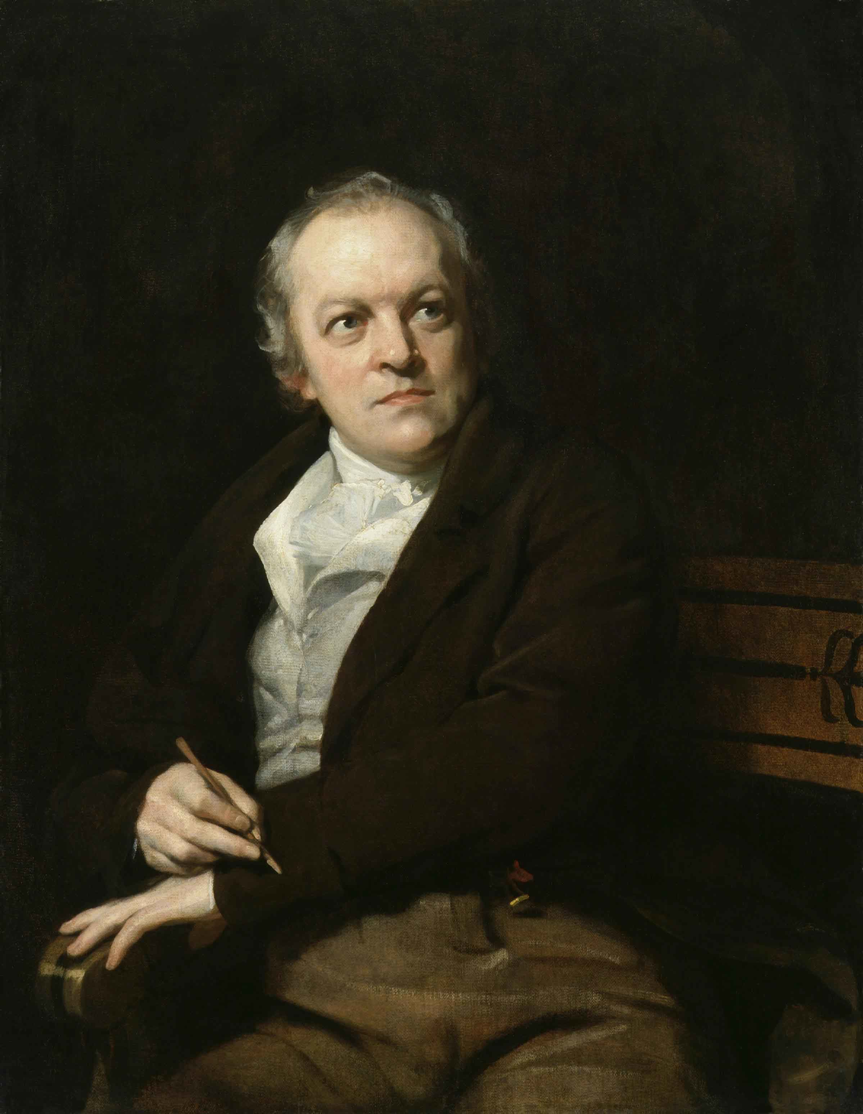William Blake słynne cytaty
Źródło: Boski wizerunek, przeł. Jerzy Pietrkiewicz
Źródło: Nie próbuj mówić o miłości
Tiger, tiger, burning bright
In the forests of the night,
What immortal hand or eye
Could frame thy fearful symmetry? (ang.)
Inna wersja:
Tygrysie, błysku w gąszczach mroku,
Jakiemuż nieziemskiemu oku
Przyśniło się, że noc rozświetli
Skupiona groza twej symetrii? (tłum. Stanisław Barańczak)
Źródło: Tygrys, przeł. Jerzy Pietrkiewicz
William Blake Cytaty o myślach
I will not cease from mental fight,
Nor shall my sword sleep in my hand,
Till we have built Jerusalem
In England’s green and pleasant land. (ang.)
Przekład Macieja Frońskiego:
W bitewnym niech nie padnę szale
I niech w mym ręku miecz nie zaśnie,
Aż zbudujemy Jeruzalem
Tu, na angielskiej ziemi właśnie.
Źródło: hymn Jerusalem ze wstępu poematu Milton: A Poem (1804), tłum. Jerzy Pietrkiewicz.
William Blake cytaty
od tego fragmentu została zaczerpnięta nazwa zespołu The Doors.
Źródło: Marek Gaszyński, Czy wiesz? Zagadki. Muzyka rozrywkowa, Warszawa 1996, wyd. Alfa, s. 20.
To see a World in a Grain of Sand
And A Heaven in a Wild Flower,
Hold Infinity in the palm of your hand
And Eternity in an Hour. (ang.)
Wróżby niewinności
„Nadmiar smutku się śmieje. Nadmiar radości płacze.”
Zaślubiny Nieba i Piekła
Every morn and every night
Some are born to sweet delight.
Some are born to sweet delight,
Some are born to endless night. (ang.)
Wróżby niewinności
William Blake: Cytaty po angielsku
Prefatory Poem
1800s, Milton (c. 1809)
Źródło: 1800s, Auguries of Innocence (1803), Line 129
“The Old and New Testaments are the great code of art.”
Oldest source found: "The Harvard Advocate" (Vol. 102–103), p. 268
Attributed
“Pity must join together those whom wrath has torn in sunder”
Źródło: 1800s, Jerusalem The Emanation of The Giant Albion (c. 1803–1820), Ch. 1, plate 7, lines 62 The Words of Los to his Spectre
“The strongest poison ever known
Came from Caesar's laurel crown.”
Źródło: 1800s, Auguries of Innocence (1803), Line 97
Abstinence Sows Sand
1790s, Poems from Blake's Notebook (c. 1791-1792)
Book the First, 24:72
1800s, Milton (c. 1809)
Mock On, st. 1
1800s, Poems from Blake's Notebook (c. 1804)
“There can be no Good Will. Will is always Evil; it is persecution to others or selfishness.”
Annotations to Swedenborg (1788)
1780s
Źródło: 1800s, Auguries of Innocence (1803), Line 107
The Letters Of William Blake https://archive.org/details/lettersofwilliam002199mbp (1956), p. 90
1790s
Źródło: 1790s, The Marriage of Heaven and Hell (1790–1793), Proverbs of Hell, Lines 8–9
The Little Black Boy, st. 7
1780s, Songs of Innocence (1789–1790)
Introduction, st. 4
1790s, Songs of Experience (1794)
Song (My Silks and Fine Arrays), st. 1
1780s, Poetical Sketches (1783)
Annotations to An Apology for the Bible by R. Watson
1790s
The Angel That Presided
1800s, Poems from Blake's Notebook (c. 1807-1809)
Nurse's Song, st. 1
1780s, Songs of Innocence (1789–1790)
Let the Brothels of Paris, st. 2
1790s, Poems from Blake's Notebook (c. 1791-1792)
A Vision of the Last Judgment
1810s
Źródło: 1800s, Jerusalem The Emanation of The Giant Albion (c. 1803–1820), Ch. 1, plate 26, lines 1-4
“Terror in the house does roar,
But Pity stands before the door.”
Terror in the House
1800s, Poems from Blake's Notebook (c. 1804)
I Asked a Thief
1790s, Poems from Blake's Notebook (c. 1791-1792)
There Is No Natural Religion (1788)
1780s
“Every tear from every eye
Becomes a babe in eternity.”
Źródło: 1800s, Auguries of Innocence (1803), Line 67
“All wholesome food is caught without a net or a trap.”
Źródło: 1790s, The Marriage of Heaven and Hell (1790–1793), Proverbs of Hell, Line 13
“When a Man has Married a Wife
He finds out whether
Her Knees & elbows are only
glued together.”
Poems from Blake's Notebook (c. 1800–1803)
1800s
